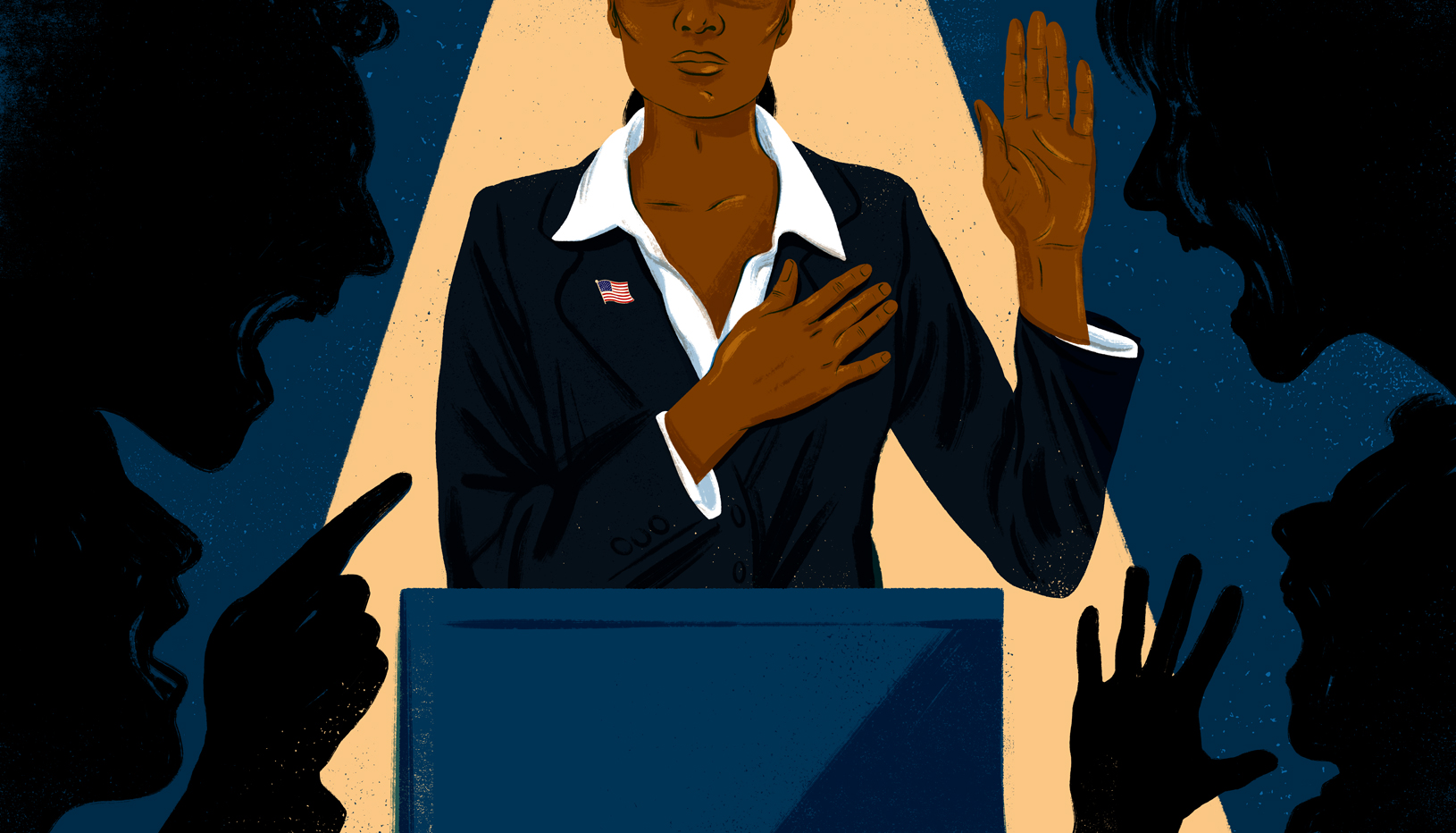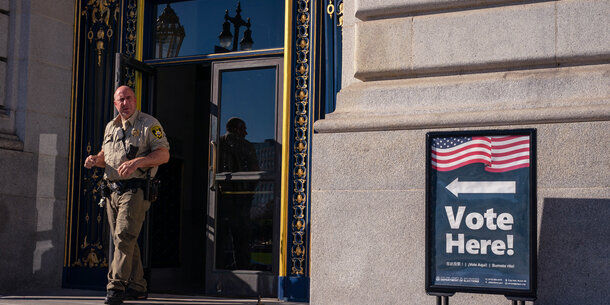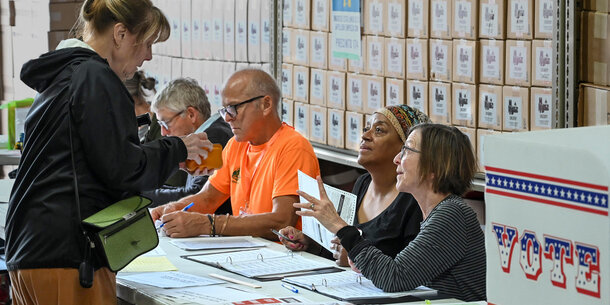You’re reading The Briefing, Michael Waldman’s weekly newsletter. Click here to receive it in your inbox.
Violence has often scarred American politics. There was systematic terrorism from the KKK aimed at Black voters. Pinkertons versus labor unions. Unrest in cities in the 1960s. The violence aimed at the marchers in Selma. And, of course, the assassinations of presidents and other leaders.
Now we are in the middle of what seems to be another historic wave of violence. The shooting of Rep. Steve Scalise, the insurrection at the Capitol on January 6, the attack on Rep. Nancy Pelosi’s husband, the threats against Republican members of Congress for refusing to support Rep. Jim Jordan’s run for speaker of the House, and more all reflect this intense and angry moment.
Last week, the Brennan Center released an important and timely report documenting the growing problem of abuse, threats, and violence directed at state and local elected officials. The top-level numbers are extremely troubling. At the state level, 43 percent of legislators have experienced threats, and 38 percent reported that the amount of abuse they experience has increased since first taking public office, while only 16 percent reported that it has decreased. The numbers for local officials are similarly worrisome.
American democracy, for all its greatness and progress over two centuries, has always had a dark thread of suppression running through it. Sometimes that is reflected in unfair rules that benefit the powerful. As Woody Guthrie sang, “some will rob you with a six-gun, and some with a fountain pen.” But sometimes that intimidation is more direct. The threat of violence is the most ominous way ideas are suppressed. Not just ideas, but people. And make no mistake — that’s what this wave of violence is about.
As Washington State Rep. Kristine Reeves, a Black woman who recently introduced a bill to disqualify insurrectionists from running for office, told the Guardian, “White men have come online and told me that I need to be hanged. They have called my office and suggested that me and my family need to watch out because we’ve got what’s coming to us. It’s one thing to take those risks on for yourself; it’s completely another to do so knowing that you’re putting your family in harm’s way.”
Among local officeholders, intimidation is directed disproportionately at demographic groups that have been historically underrepresented in U.S. government, and it appears to be more specific and vicious when targeted at those people. The women and people of color who responded to our survey reported much higher levels of threats invoking their race, gender, or sexuality, and a larger share of women than men reported increases in the severity of abuse since taking office. Local officeholders of color were more likely to receive abuse directed at their families than were white officeholders.
Has our democracy survived through periods of high political violence? Of course. Compared with the years leading up to the Civil War, and obviously the war itself, or the turmoil of the 1960s, the current era is placid.
But that is cold comfort. Members of Congress aren’t beating each other bloody under the Capitol dome. But it can get much worse if we continue on this course. And it shouldn’t be forgotten that no one ever attempted to disrupt the peaceful transfer of power through violence between 1861 and 2021.
Intimidation, abuse, and violence are toxic to democracy. They deform our national conversation by censoring discussion of some topics. In the Brennan Center survey, approximately 20 percent of state officeholders and 40 percent of local officeholders said they were less willing to work on controversial topics due to abuse. That’s a sure sign of an unhealthy marketplace of ideas.
But I have been heartened by the reception our research has received. The report’s lead author, Gowri Ramachandran, has been in high demand to discuss the findings. Major news outlets like Reuters, Time, and USA Today have covered the report. And social media discussion has been vigorous. Posts related to the report have been viewed more than 100,000 times.
The election denier movement of recent years has been an unsettling new force. But that has produced its own form of backlash. There’s a democracy movement, broad and diverse: New poll workers are signing up for the job in places like Fulton County, Georgia, inspired by former election worker Shaye Moss and her mother Ruby Freeman, who endured vitriolic threats and harassment after the 2020 election. “We actually haven’t had to convince people,” voter education and outreach manager LaShandra Little said. “People literally have been calling, asking, ‘How can I sign up?’” My hope is that we will see a sustained, broad movement of Americans who demand a peaceful, inclusive democracy in which only our ideas are at war.












